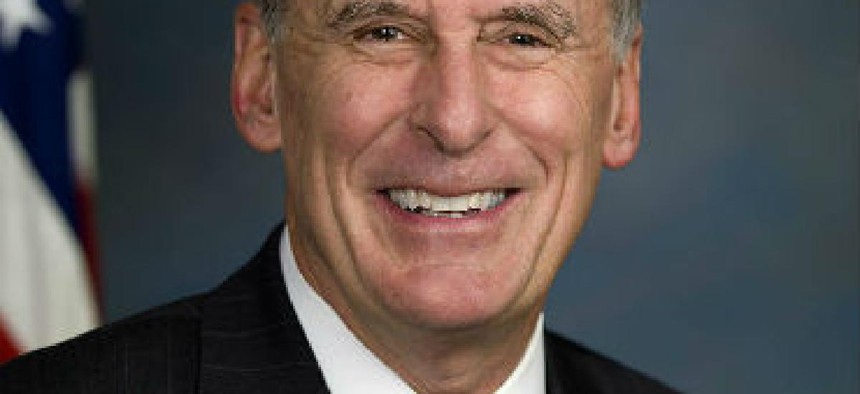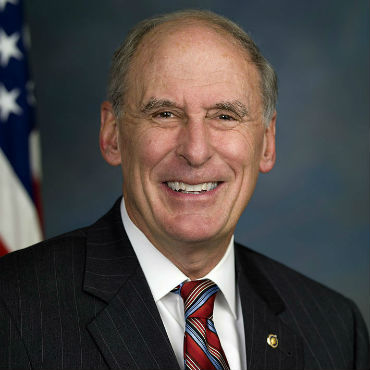Trump to appoint former senator as DNI

According to multiple reports, President-elect Trump intends to nominate retired Indiana Senator Dan Coats as Director of National Intelligence.

According to multiple media reports, President-elect Donald Trump intends to nominate former Indiana Senator Dan Coats as Director of National Intelligence.
If confirmed, Coats will replace James Clapper, a career military and intelligence officer, and become the sixth person to serve as DNI since the office was created in the wake of 9/11.
Other than his time on the Senate Intelligence Committee, Coats does not have an extensive intelligence background. He served as a congressman in Indiana before being appointed to the Senate after Dan Quayle resigned to serve as vice president.
Coats won election to a full term and served in the Senate until 1999. He spent four-and-a-half years as U.S. ambassador to Germany and then worked as a lobbyist before running for the Senate again in 2010.
Sen. Lindsay Graham (R-S.C.), who has been critical of Trump for his stance toward Russia and reports of election-related cyberattacks against U.S. political targets, welcomed the pick of Coats.
"Dan Coats will be an outstanding Director of National Intelligence. This was a very good choice by President-elect Trump," Graham said.
After the Edward Snowden leaks, Coats penned an op-ed in the Wall Street Journal condemning Snowden as well as congressional colleagues who he said mischaracterized and unfairly criticized National Security Agency surveillance programs.
"These programs represent some of the most effective means available to protect the country from terrorist organizations like al Qaeda," he wrote. "Leaking this information only degrades our ability to prevent attacks. It compromises our sources and gives terrorists critical information on how we monitor their activities.
"The government's interest in carrying out these programs is the most compelling imaginable: an enduring defense against terrorist attacks that could take thousands of innocent lives," he continued. "I have no doubt that returning to a pre-9/11 security posture will make this country less safe."
Coats voted against the USA Freedom Act that supplanted much of the Patriot Act. On cyber, Coats has been a strong proponent of information sharing between the government and private sector, telling IC officials in a 2013 hearing on national security threats that "providing such things as liability, coverage, and so forth, and assuring that the standards that are set are compatible with industry standards, I think, are critical issues there…hopefully we can address that, and keep that at the level of priority where you have put it…this is a serious subject, and we need to get on it sooner rather than later."
The news of Coat's selection comes on the heels of controversy and confusion about President-elect Trump's views on the Office of the Director of National Intelligence.
A Wall Street Journal report published Jan. 4 claimed that Trump transition officials said that the ODNI had become bloated and politicized and needed reform. The report also stated that Trump advisors were also working on a plan to reorganize the CIA and push more personnel out into the field.
But Trump's spokesman Sean Spicer stated there is no truth to reports the president-elect planned to restructure the intelligence community. "It is 100 percent false," he stated.
At a Jan. 5 Senate Armed Services Committee hearing, outgoing DNI James Clapper said said he had not had any discussions with the Trump team about the ODNI and any possible reforms.
Clapper also warned that disparaging the IC undermines public confidence in intelligence agencies. He said that it's reasonable and healthy for policy makers to be skeptical about intelligence they receive.
"I think there's a difference between skepticism and disparagement," he said. "I've received many expressions of concern from foreign counterparts about the disparagement of the U.S. Intelligence Community, or I should say, what has been interpreted as disparagement of the U.S. Intelligence Community," Clapper said.


